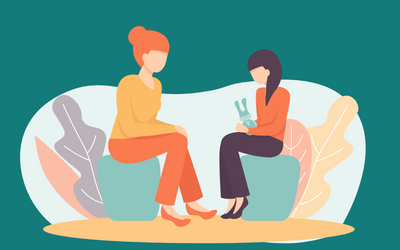How to Deal with Holiday Insomnia

The holidays are a time for rest and celebration for many families as everyone's free time syncs up together. However, with excitement comes the potential for insomnia to seep into our lives. Work tends to pile up during this time as the holiday begins to approach and everyone will be anxious to finish up their work. With extra thoughts and worries, insomnia becomes more of an issue during the festive seasons. Here are some rituals that you can practice to get better sleep:
Healthy Sleep Schedule
Over the years, the hassle of our lifestyles might lead to erratic sleep schedules. Perhaps you had to answer that one last email at 12 midnight, or finish that episode of your favorite TV Series. Our circumstances due to a constantly shifting environment has resulted in an unhealthy sleep schedule. Especially during the current period of the pandemic, our sense of time has become warped. Our usual routine of attending work and returning home has now been disrupted.
However, we still have power over our sleep schedule! Begin by waking up at a set time everyday (even on the weekends). This might be easier than sleeping at a set time everyday and helps you work up towards reaching that goal. Avoid screen time on your electronic devices near your bed as the blue light suppresses the natural melatonin (the chemical that creates the 'sleepy' feeling). Blue light glasses can also help minimize your exposure to blue light.
Change Your Sleeping Environment
With the pandemic blurring the boundaries between work, play and sleep, our bed has become a lot more convenient to access. Making sure that we keep our bed as the dedicated space for sleeping is extremely important to dealing with insomnia. Avoid using your laptop on your bed when you are feeling tired in the day and keep your afternoon naps to 20 min at maximum. Allow your body to differentiate between your bed and your work/play area.
Stress Management
While the previous mentioned guides might help some, there are sometimes underlying problems that cause insomnia. Stress and anxiety about the future are common causes for sleep deprivation. These mental health issues in our lives affect our physical body, such as increased blood pressure and increased heart rates.
Practicing meditation and mindfulness can help us deal with these harmful thoughts and allow us the rest needed for sleep. If the problems persist, it might be useful to approach a therapist or counselor for help. As each person's problem is unique, so are the solutions needed to combat it. A mental health expert would be able to identify the problems that are unique to your context.
Alternative Resource
Our mental health expert at Infinit Care, Shyne Mangulabnan, has also talked about dealing with insomnia and a short snippet of her advice can be found here.
If you would like to consider beginning your mental health journey with Infinit Care, sign up for a counseling session here.


